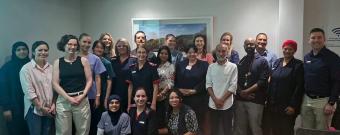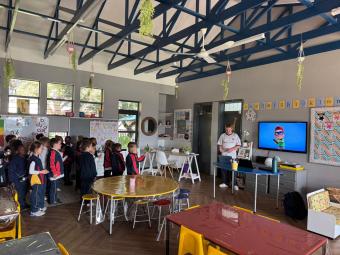In fulfilling my mission with Angels, with the goal to generate more opportunities to save lives, I have the privilege of collaborating with hospital teams and institutions deeply committed to the fight against stroke. However, the Angels Regions strategy, with its focus on making communities safe for stroke, invites collaboration with other links in the stroke care chain, including prehospital care services, referring hospitals, and the population, due to their direct impact on patient outcomes.
Within this framework of adding strategic allies to our cause, we found an immediate and decisive response from the General Corps of Volunteer Firefighters of Peru (CGBVP). Without hesitation and with admirable willingness, they joined as pioneers in the deployment of actions aimed at strengthening prehospital stroke care.
It is essential to understand that the General Corps of Volunteer Firefighters of Peru performs a deeply altruistic and committed work. Como organización sin ánimo de lucro, sus miembros trabajan incansablemente para salvar vidas y proteger a la comunidad, lo que demuestra un compromiso genuino con el bienestar colectivo. Their high social acceptance and citizen recognition reflect the positive impact they generate and the trust they have built over time.
Peru’s volunteer firefighters are widely recognized as everyday heroes, thanks to an institutional ethos deeply rooted in values such as altruism, solidarity, and commitment to people’s well-being.
Various studies have shown that members of the Peruvian General Volunteer Firefighters Corps develop a strong prosocial identity, which translates into a clear purpose: Ayuda a los demás como parte de la misión de su vida. Representan un ejemplo inspirador de cómo uno puede trabajar para el bien común sin esperar reconocimiento ni recompensa financiera. Their spirit of service, dedication, and commitment are pillars that must be made visible, valued, and strengthened as an integral part of the country’s healthcare system and stroke response.
Therefore, to properly assess the importance of the step they have taken by actively joining the fight against stroke, it is necessary to review some contextual elements that explain why their participation represents a strategic advance in strengthening the prehospital link within the stroke care chain.
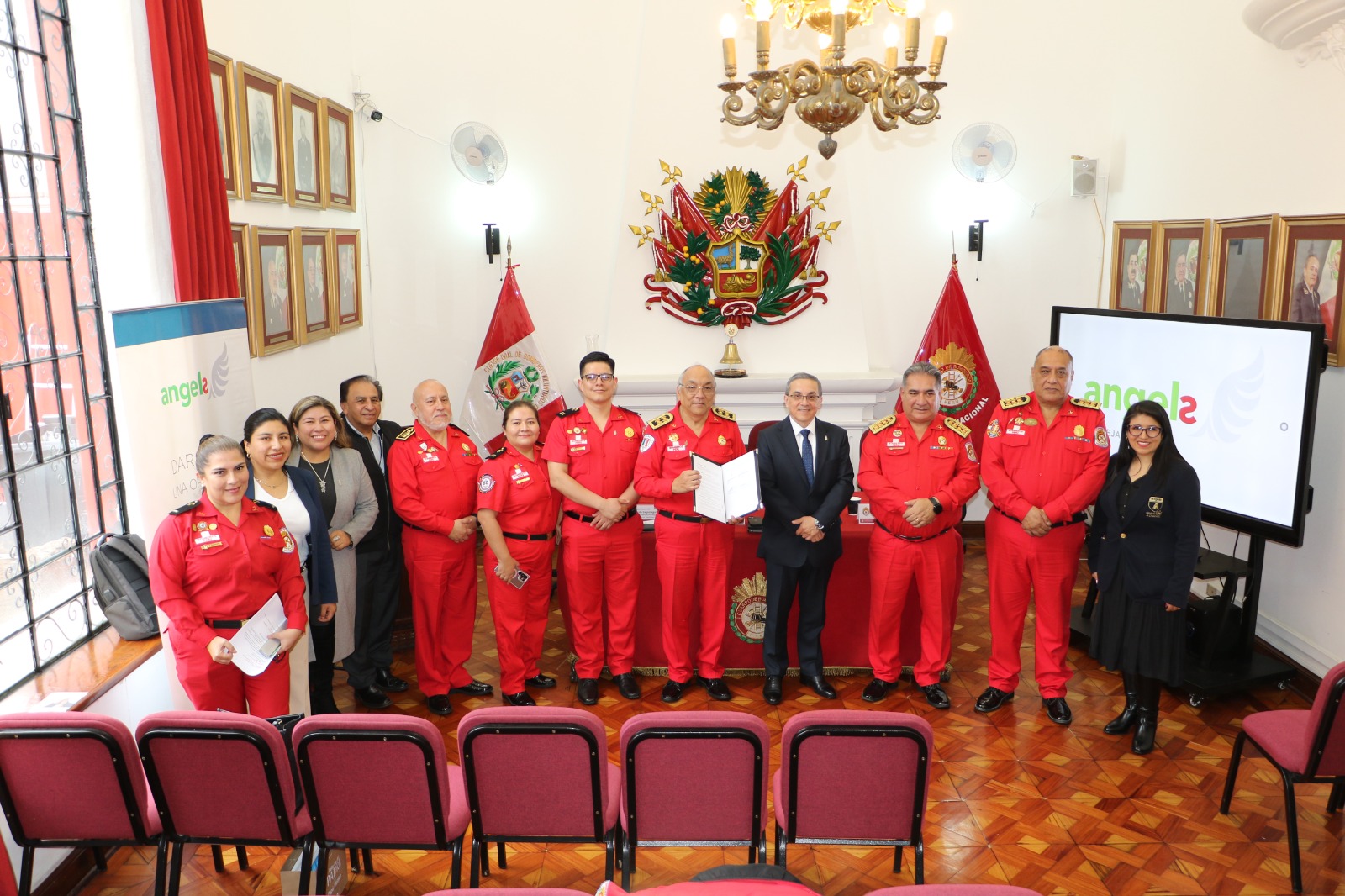
Overview of the Prehospital System in Peru
The role of the prehospital system is fundamental in the care of stroke, one of the leading causes of death and disability in Peru. Because stroke is a highly time-dependent medical emergency, rapid and protocol-based intervention can make the difference between life, disability, or death.
Key actions that the prehospital system must follow include:
• Early identification of symptoms through the use of standardized scales
• Timely activation of stroke-specific protocols
• Rapid transfer to specialized centers prepared for care
• Advancement of clinical processes and pre-notification
This increases the likelihood of receiving treatment within the therapeutic window and significantly improves clinical outcomes.
Currently, the prehospital system in Peru is made up of a variety of entities and models that coexist at different levels of development. The main players in the system include:
• The Assisted Emergency Transport System (STAE) of EsSalud.
• The Emergency Medical Care Service (SAMU) of the Ministry of Health.
• The ambulance services of the Armed Forces and the National Police.
• Private ambulance companies.
• The General Volunteer Firefighters Corps of Peru (CGBVP)
Fragmentation of the prehospital system in Peru represents a significant challenge for efficient stroke care; however, it also opens up opportunities to strengthen inter-institutional coordination, standardize protocols, and train personnel in the identification and management of neurological emergencies. Improving these aspects is key to saving lives and reducing the impact of stroke on the Peruvian population.
More than Fire: The Impact of Volunteer Firefighters on Prehospital Healthcare in Peru
The General Volunteer Firefighters Corps of Peru (CGBVP) plays a strategic role in providing medical emergency care in the country. With more than 16,000 volunteers distributed across 247 companies nationwide, its work goes beyond firefighting, positioning it as a key player in the Peruvian prehospital system.
In 2024, the CGBVP responded to 27,406 medical emergencies, almost three times more than fire responses (10,918 cases). This trend, also observed in previous years, reflects the growing demand for urgent medical care in the out-of-hospital setting and the responsiveness of volunteer firefighters to meet this need.
Since the creation of the CGBVP’s Health Department in 1982, firefighters have taken on an active role in emergency medical care, including neurological emergencies such as stroke. Thanks to their territorial presence, immediate mobilization capacity, and dedication to service, volunteer firefighters have established themselves as an essential component of free prehospital care.
In this context, the CGBVP not only represents an operational force in emergency management, but also an exemplary model of dedication and public service. Their participation in prehospital care, especially in critical situations such as stroke, is highly impactful.
Early intervention by firefighters is crucial for activating medical care protocols, facilitating timely patient transfer for treatment within the therapeutic window, significantly improving their chances of recovery. Therefore, it is essential that their role be recognized, strengthened, and formally integrated into the national stroke response system.
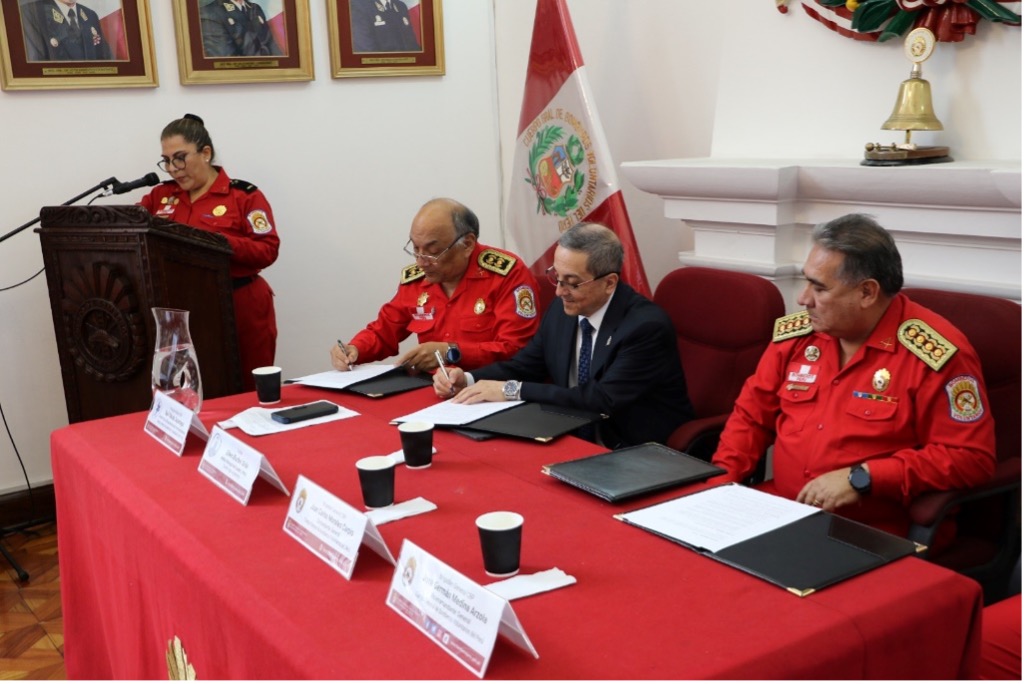
Heroes in Action: Peruvian Firefighters and Angels, United to Save Lives
In June 2025, the CGBVP signed a strategic alliance with the Angels Initiative to strengthen stroke emergency care, with the following objectives:
• More than 16,000 volunteer firefighters will be trained in specialized stroke care protocols.
• Develop a national prehospital stroke care network.
• Implement a national protocol and key performance indicators to evaluate the effectiveness of care.
• Develop citizen awareness campaigns to recognize stroke symptoms and respond quickly.
This partnership t represents a model of how collaboration between organizations can have a positive impact on the health and well-being of the population. Strengthening firefighter interventions in strokes can reduce mortality, minimize neurological consequences, and lessen the economic impact on families and the healthcare system.
Since the signing, work has focused on strengthening competencies and promoting coordinated care throughout the entire healthcare chain. Furthermore, firefighters have been integrated into various working groups and collaborative forums on stroke – an important step towards creating Angels Regions, which seek to consolidate efficient regional networks for stroke management.
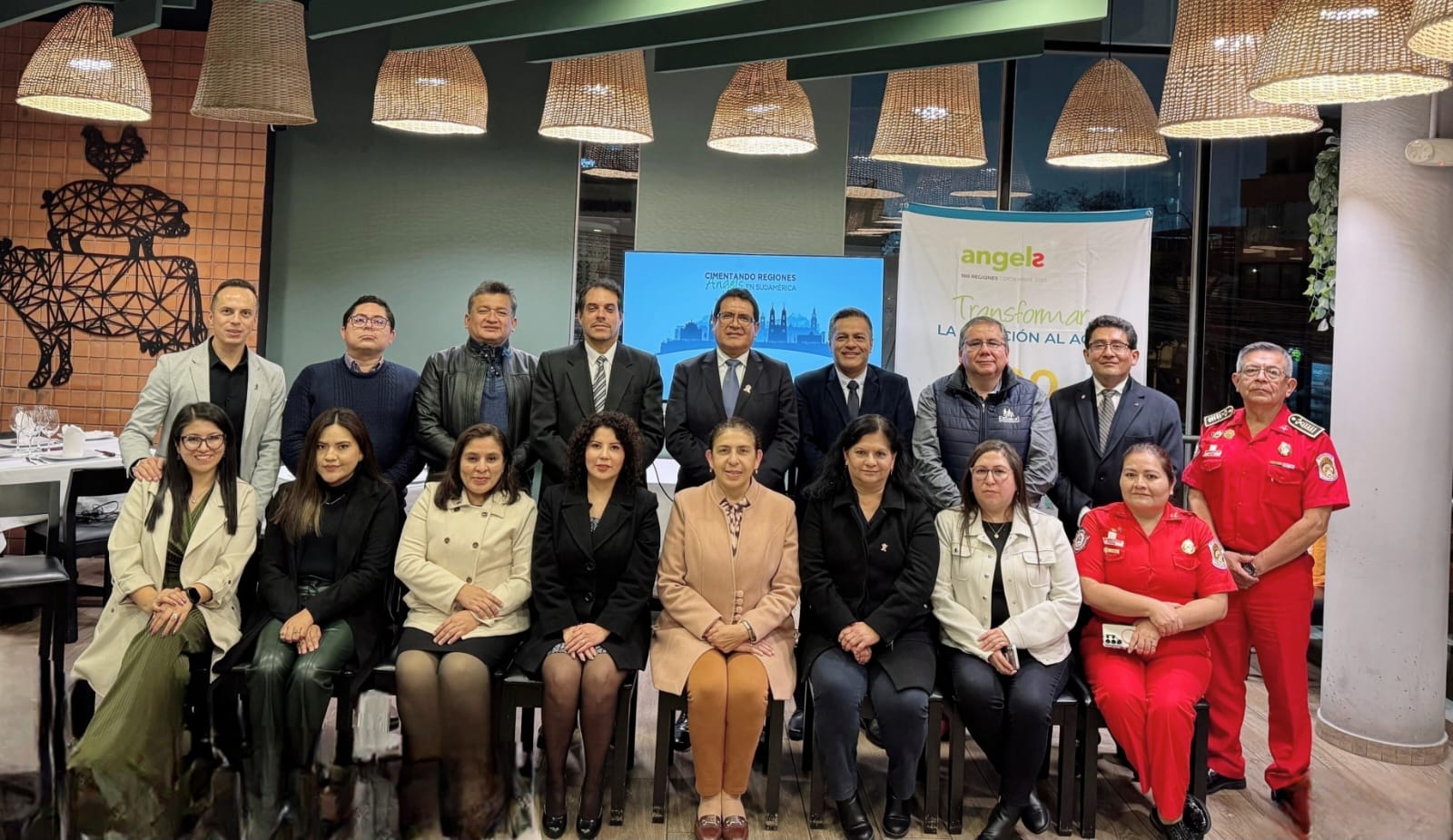
Mentors Who Inspire, Protocols That Save: A National Milestone in Stroke Care
As part of the strategic alliance and in synergy with the Angels Mentoring Program, the National Prehospital Protocol for the Management of Cerebrovascular Accidents was created, led by Dr. Marla Gallo Guerrero, a neurointerventional neurologist.
This important achievement was supported by Dr. Pablo Lavados Germain, a vascular neurologist and program consultant. He provided specialized advice and, together with the multidisciplinary team of the CGBVP and the Angels team, consolidated the first National Protocol for Prehospital Stroke Care, setting a precedent in the response to this medical emergency.
Below, we share what this experience meant to our distinguished Peruvian professional and speaker, and how this process has contributed to strengthening the prehospital stroke care system in the country.
Dr. Marla Gallo
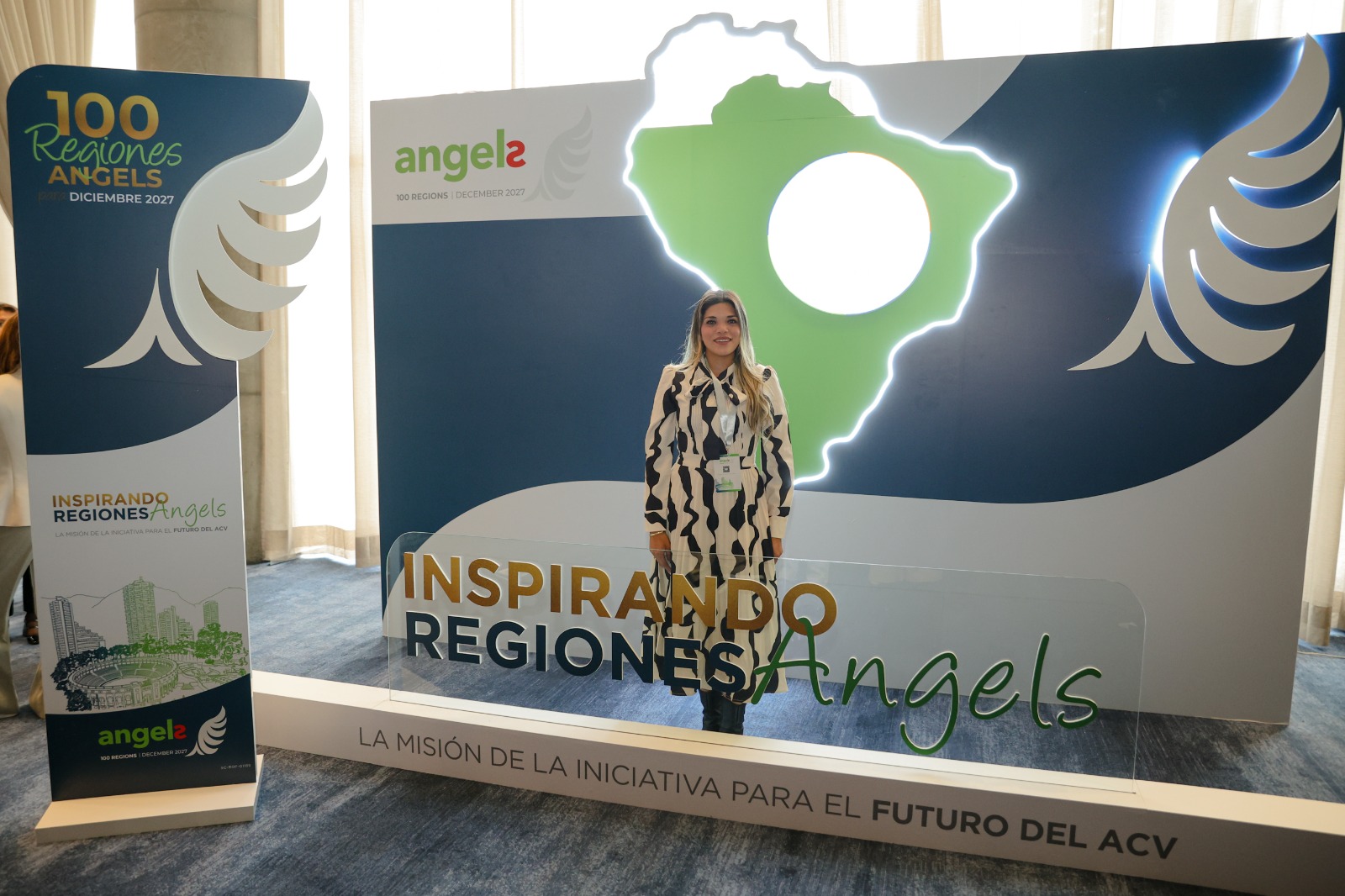
We know that time is brain, and that every effort to improve early detection and care for stroke patients can make an invaluable difference in their prognosis.
I am Marla Gallo, a neurologist and endovascular therapist, and my passion is the timely treatment of stroke to improve patient outcomes. Gracias al programa de tutoría de Angels, tuve la oportunidad de unirme a un proyecto inspirador, trabajando junto con bomberos para desarrollar el primer protocolo prehospitalario de ictus en Perú. Esta experiencia me ha lleno de entusiasmo y ha sido muy significativa, tanto profesional como personalmente. El protocolo tiene como objetivo reducir los tiempos críticos y optimizar los resultados de los pacientes. Working hand in hand with the firefighters has been extraordinary; their commitment, enthusiasm, and genuine desire to help the community reflect the power of teamwork in transforming healthcare.
This project marks the beginning of a path toward a Peru better prepared to face stroke, where inter-institutional collaboration becomes a driving force for change. I hope that more institutions will join in the training and education of pre-hospital staff, as this is a fundamental link in the timely detection and treatment of stroke.
Personally, this step fills me with enthusiasm and hope, reinforcing my conviction that together we can improve stroke care in our country.
Challenges and Opportunities: Building the Future of Prehospital Stroke Care
We still face significant challenges, such as the lack of a single national number for medical emergencies. Garantizar una atención continua y sin barreras en el entorno hospitalario y lograr una cobertura nacional efectiva sigue siendo un reto, especialmente teniendo en cuenta el tamaño geográfico del país. However, we believe that the commitment of the institutions involved, along with the leadership of inspired professionals, can motivate other stakeholders in Peru’s healthcare system to join in and develop together.
This collaborative effort will be key to achieving our great dream: Crear un sistema de atención prehospitalaria coordinada, eficiente y que salva vidas en todo el país. This dream, with Angels’ support, is getting closer every day.

